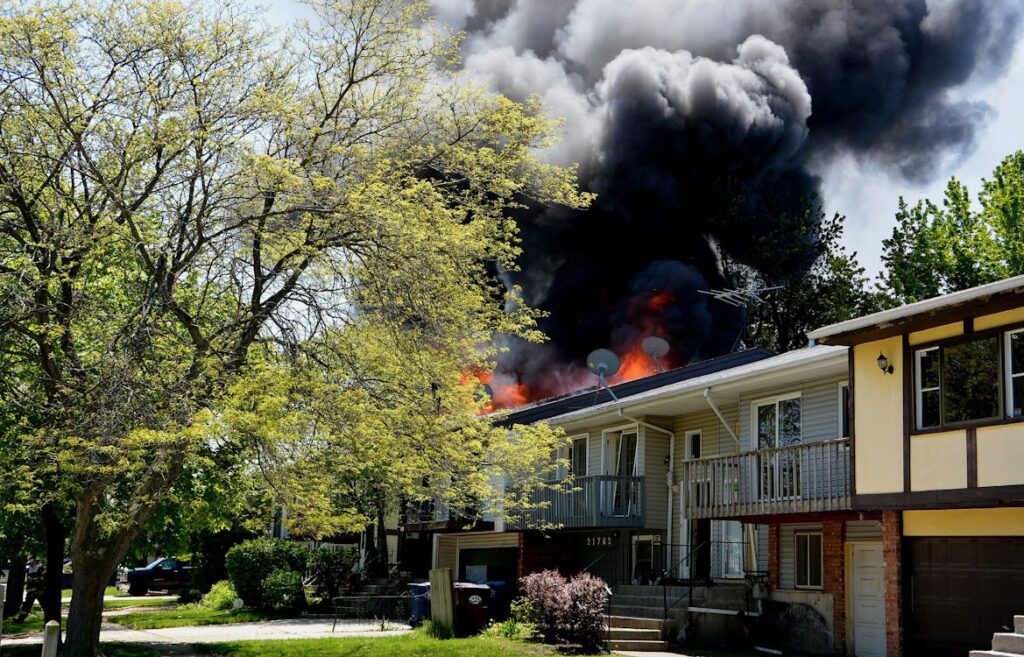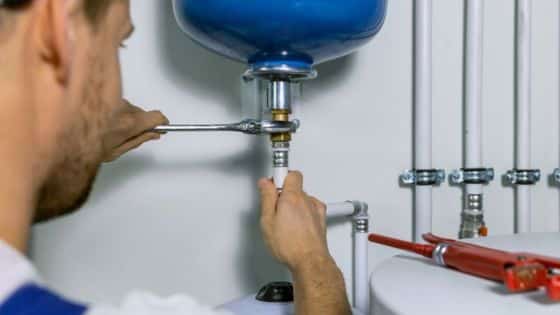
Natural disasters can be so overpowering that they leave you feeling confused and uncertain about what lies next.
In the United States alone, there were 97 natural disasters in 2021, according to Statista. Of these, twelve were the consequence of floods, 14 were caused by heat waves, drought, and wildfires, and 64 by severe thunderstorms. Tropical cyclones, winter storms, and cold waves were among the other events.
These disasters not only bring significant physical and economic damage but also have lasting impacts on mental health and personal stability. In the aftermath of such disasters, it is crucial to prioritize immediate attention to both your home and mental well-being.
This article highlights key steps to take after a disaster, with an emphasis on restoring your home and taking care of your well-being.
Immediate Safety Measures After a Disaster
Before beginning any restoration efforts, it’s crucial to ensure your home is safe to enter. First, assess the structural integrity by checking for signs of damage such as cracks in walls or ceilings, sagging roofs, or unstable foundations. Additionally, turn off utilities if you suspect any damage to gas lines or electrical systems to minimize risks.
According to the United Way, if you need to shelter elsewhere, keep a record of all expenses incurred, such as hotel costs and meals. Keep receipts and place them in an envelope to present when meeting with an insurance representative.
Many homeowner and renter insurance policies offer limited coverage for these expenses after a disaster. However, if you cannot afford shelter or lack insurance, look for a local community shelter which is free to use after a disaster.
Additionally, consider registering for disaster assistance at disasterassistance.gov to access available resources and support.
Engage Disaster Restoration Services
Once you have ensured safety, it is crucial to engage professional disaster restoration & cleaning services. Their services typically include:
- Water damage restoration: Rapid removal of water and drying of affected areas is critical to prevent mold growth.
- Fire damage cleanup: Professionals can remove soot and smoke odors while restoring damaged structures.
- Mold remediation: If mold has developed due to water damage, experts can safely remove it and prevent future growth.
Using these services can accelerate the restoration process and significantly reduce the stress associated with recovery. These professionals possess the expertise and tools required to efficiently address diverse types of damage.
According to Disaster Masterz, these experts offer a broad range of cleaning and disinfection services to ensure your home stays healthy. Their skilled technicians also specialize in air duct and HVAC system cleaning, deodorization, mold remediation, and more—helping you maintain optimal indoor air quality.
Caring for Your Mental Well-Being
Disasters can take a significant toll on mental health. According to MDPI, nearly one-third of disaster survivors may suffer from negative mental health impacts, including PTSD, depression, and anxiety.
While many people cope well in the aftermath of a disaster, some may struggle to return to normal functioning. For some, trauma related to disaster exposure may emerge immediately, while others may experience delayed psychological impairments. A small percentage of these individuals may develop more serious mental health issues, such as PTSD, in the long term.
During these trying times, self-care is paramount. Seeking support is crucial, whether it’s through friends, family, or mental health professionals. Sharing your feelings can alleviate stress and combat feelings of isolation.
Making Long-Term Improvements
As you begin the restoration process, consider making long-term improvements that enhance your home’s resilience against future disasters:
- Invest in quality materials: Use durable materials that can withstand environmental stresses.
- Implement safety features: Enhance home safety by installing smoke and carbon monoxide detectors, as well as fire extinguishers, in easily accessible areas.
- Create an emergency plan: Develop a comprehensive emergency plan, outlining evacuation routes and communication strategies with family members.
The Role of Travel in Recovery
After experiencing a disaster, travel can play an important role in emotional and mental recovery. It offers individuals a chance to escape the stress and emotional turmoil associated with rebuilding their lives. A luxury travel agency can help enhance this experience significantly.
Windy City Travel notes that when you want to travel, the focus should be on enjoyment and relaxation. The goal is to unwind and experience the destination without the stress of managing logistics.
Travel agencies specialize in curating personalized experiences that allow you to immerse yourself in new environments without the burden of planning. This level of care provides a much-needed respite and helps restore a sense of normalcy and joy during the recovery process.
FAQs
What is the most important thing to do after a disaster?
The most important thing to do after a disaster is to ensure safety. Assess your environment for hazards, evacuate if necessary, and seek shelter. Once safe, prioritize securing immediate needs like food, water, and medical care, and then begin assessing damage to your home and mental well-being.
What precautions should be taken after a disaster?
After a disaster, first check yourself for injuries and seek medical attention if needed. Examine all sections of your building for damage, and avoid staying in rooms with cracks in walls or ceilings. While moving inside, protect your head with a helmet, pillow, or rubber sheet, and stay prepared for aftershocks.
What is the best way to cope after a disaster strikes?
The best way to cope after a disaster strikes is by promoting physical and emotional healing through rest, healthy eating, exercise, and meditation. Aim to keep a regular family and daily routine to minimize stress. Spend quality time with loved ones and take part in memorials to pay tribute to those impacted by the disaster.
Recovering from an environmental disaster involves careful planning and execution. By taking safety measures, engaging professional restoration services, and prioritizing mental well-being, you can effectively restore your home and support your health. Remember that recovery is a journey; reach out for help when needed and allow yourself time to heal.
- 0shares
- Facebook0
- Pinterest0
- Twitter0



